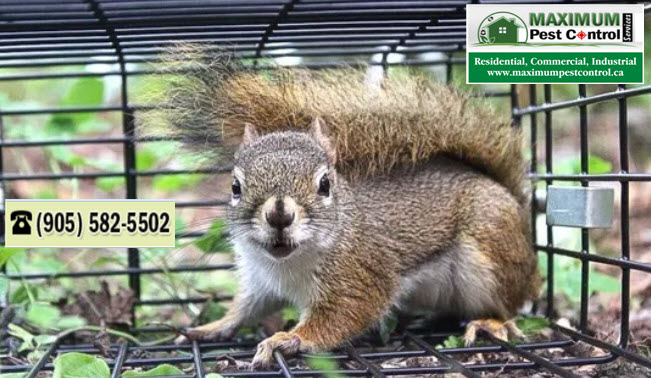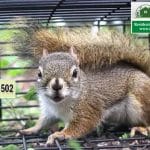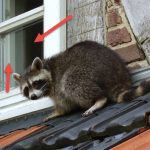
Could Squirrels Pose A Danger To Humans
Worried about squirrels causing damage to your home? Learn how these critters can pose a danger to humans and what steps you can take to protect your property. Trust Maximum Pest Control Services for expert pest solutions.
Squirrels may look adorably harmless, but don’t underestimate their potential risks. These ubiquitous rodents inhabiting our parks and yards possess an array of traits that could endanger humans when populations and proximity allow.
While not outright aggressive, squirrels can lash out fiercely to protect nests or when threatened. Their sharp teeth and claws easily break skin. Squirrels also spread diseases like salmonella through feces contamination and parasites like fleas hitching rides on their furry bodies. Property damage from their incessant chewing and nesting warrants concern too. Though not intentionally confrontational, these resourceful rodents require healthy respect and management.
The Rarity of Attacks
Let’s be clear – squirrel attacks on humans are extremely uncommon events. These generally mild-mannered creatures avoid confrontation and keep a respectful distance from anything larger than themselves. However, their instinctive behaviours can prompt an uncharacteristic defensive response under certain conditions.
Squirrels don’t actively seek to harm us. But they’re hardwired to vigorously defend nests, territory and young ones from any perceived threats – including wandering humans who stray too close for their comfort. This inborn protectiveness rapidly turns passive aggressive and emboldened when they feel cornered or endangered. What seems docile can turn feisty in an instant if threatened.
Under typical conditions with adequate space between squirrels and people, aggressive encounters rarely materialize. But those living in close proximity or frequently disrupting squirrel havens play with fire. Respecting squirrels’ innate fear of humans and steering clear of their domains prevents virtually all altercations.
Aggressive Behaviour Triggers
Any perceived threat to their territory, nesting areas or offspring can prompt aggressive behavior in squirrels. Breeding season amplifies this territorial defensiveness.
Don’t underestimate their ferocity when threatened. Squirrels’ small size belies the power in their sharp incisor teeth and claws, capable of breaking skin. Attempting to feed or get too close raises your risk of defensive bites and scratches. Some bite victims have required rabies shots.
These determined rodents won’t back down easily. Tales tell of squirrels tenaciously clinging to appendages, refusing to let go during attacks. Even larger predators like foxes give angry squirrels a wide berth.
Relentless Chewing Habits
Property damage ranks among the biggest squirrel nuisances humans face. These rodents’ obsessive gnawing habits stem from a need to constantly trim their ever-growing incisor teeth.
Once inside homes or buildings, no material proves safe – electrical wiring, insulation, wooden beams, even plastic vehicle components. Squirrels amaze with their ability to squeeze through tiny entry gaps, gaining easy access to wreak gnawing havoc. They pillage insulation, branches and paper products to construct bulky nests potentially compromising structures and creating fire hazards.
Outside, squirrels ruthlessly tear into exteriors, lawns, and gardens searching for food or nesting spots. Their relentless chewing costs homeowners thousands annually in repair bills and preventative exclusion measures. While not maliciously destructive, these persistent rodents simply cannot contain their gnawing impulses wherever they colonize.
Do Squirrels Carry Diseases?
Like many wildlife, can vector various diseases transmittable to humans through direct contact, fecal matter or saliva exposure. Salmonellosis, Lyme disease, even plague and rabies lurk as potential risks.
However, disease threats remain relatively low if aren’t directly handled and spaces are kept clean. Problems arise when populations grow unchecked in neighbourhoods or parks. Their brazen lack of fear drives indoor invasions for food and nesting materials – increasing disease transmission opportunities.
Accumulated waste, fleas, ticks and other parasites squirrels carry contaminate living spaces when allowed uncontrolled access. Avoiding direct contact and managing squirrel numbers responsibly minimizes public health hazards.
Intestinal Parasites
A particular health hazard comes from the intestinal parasites and bacteria squirrels can spread through their droppings. Humans risk inadvertently ingesting these infectious agents from contaminated food or water sources squirrels access.
Children playing in areas with high squirrel activity face elevated vulnerability without stringent hand washing. Roundworm, giardia, salmonella and other parasites from squirrel feces may trigger unpleasant gastrointestinal issues if contracted. Diligent area sanitization and teaching kids squirrel avoidance minimizes risks.
Driving Hazards
Beyond disease risks, shockingly contribute to a significant number of vehicle collisions and related injuries annually – especially in heavily wooded areas. Their erratic, lightning-quick movements make them unpredictable road hazards.
Squirrels dart into roadways with no warning, leaving little time for drivers to react. A solid squirrel strike can puncture tires, allow them to enter vehicles through vents and damage engines, or startle drivers enough to swerve into other cars or obstacles. Their small size belies the potential for serious harm.
Office/Workplace Risks
Even seemingly squirrel-proof office parks and campuses aren’t impervious. These persistent rodents infiltrate buildings through vents, pipes, even gnawing entry holes – exposing workers to unexpected hazards:
- Unprovoked Bites: Trapped or confronted squirrels may lash out defensively with sharp teeth.
- Slip/Fall Risks: Accumulated squirrel feces and nesting materials create slick, treacherous surfaces.
- Allergic Reactions: Dander, fur and other nesting debris can trigger allergic responses in some people.
- Distractions/Startle: Squirrels scurrying about divert focus and potentially startle, increasing accident risks.
Risk to Professionals
Squirrel overpopulation poses risks beyond just office environments. Certain outdoor professions find themselves in frequent conflict with these territorial rodents when accessing areas they inhabit.
Utility workers, groundskeepers, arborists and even pest control experts have all sustained squirrel bites and scratches from inadvertently disrupting nests or territories during their duties. Accessing utility areas, trimming trees or treating infestations provokes aggressive defensive behavior from squirrels guarding their turf.
These professionals require proper protective gear and squirrel-specific safety training to minimize injuries. Unfortunately, many learn the hard way that squirrels won’t simply flee from perceived threats to their havens. Employing professional squirrel control keeps populations in check, reducing hazard exposure for at-risk workers.
Degrading Urban Greenery
For cities striving to cultivate lush, vibrant urban green-spaces, unchecked squirrel overpopulation emerges as an unexpected threat. Excessive squirrel activity stunts growth, ravages landscaping and necessitates costly cyclical replanting.
Park departments and groundskeepers must incorporate humane squirrel management into their maintenance routines for sustainable success. Left uncontrolled, squirrels wreak havoc – stripping bark, felling saplings, burying edibles and nesting indiscriminately throughout planted areas. Their impacts degrade aesthetics, deterring human enjoyment of community green spaces.
Dealing with Unwanted Squirrel Guests Safely
Squirrel infestations demand professional intervention – attempting DIY removal poses unnecessary risks. These persistent rodents vigorously guard nests, potentially lashing out aggressively. Their furry bodies also harbor ticks, mites and diseases transmissible to humans. Avoid the hazards; call in trained experts.
For safe, humane squirrel control, Maximum Pest Control Services provides specialized residential and commercial services across Canada. Local experienced technicians strategically eliminate squirrel populations and prevent future invasions through proven exclusion methods. Make sure your property is protected from these destructive pests. Contact Maximum Today (905) 582-5502.






